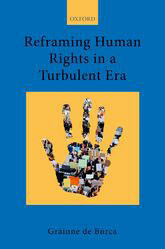
In a turbulent era, with illiberal nationalism on the rise and international laws and institutions under persistent threat, this book asks what future the international human rights system has. It rejects the claims of those who view human rights law and advocacy as ineffective or worse in challenging injustice. Instead, it presents an experimentalist account of human rights which emphasizes the ongoing engagement between domestic activists and international and domestic institutions and actors in promoting rights-based change. Rather than the monolithic movement depicted in some academic critiques, it discerns a rich and diverse human rights movement which has helped significantly to challenge injustice and advance progressive change in many contexts. Drawing on case studies of gender justice, disability rights, children’s rights and reproductive justice from Pakistan, Argentina and Ireland, the book argues that the human rights movement has made an important difference around the world. It shows that despite daunting contemporary challenges including illiberalism, climate change, inequalities, pandemics and digitalization, human rights advocates and activists are engaged in critical self-reflection, renewal and reform that should enable the human rights movement to engage effectively with these challenges in the future. Indeed, the formidable challenges of our current turbulent era provide powerful reasons to reform, innovate, and strengthen the tools and practices of the human rights movement for the future, rather than abandon it, encourage others to do so, or herald its demise.